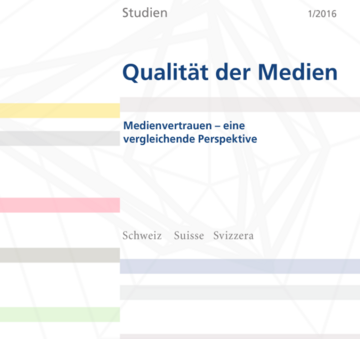Conducted by FÖG – a research institute of the University of Zurich – this study is based on a regression analysis of survey data from 13 countries, collected in the large-scale project for the Reuters Digital News Report 2016.
The report (available here ) shows that trust in the media landscape is shaped by different factors: first of all, it tends to go hand in hand with people’s news daily consumption; secondly, trust increases with a higher use of different news types, especially public service broadcasting; thirdly, a higher trust is closely related with people’s willingness to pay for journalistic content. In a nutshell, news consumption habits and trust in media are closely linked: people who use traditional information media on a daily basis have and will develop a greater trust in the media system. Conversely, trust is lost when the "ritualized use" of news daily consumption breaks away.
A second aspect concerns the different types of media. According to the report, people who use public service broadcasting news have generally more trust in the media system. At the same time, a positive media system trust increases users’ willingness to pay for news as well as the willingness to accept advertising on news platforms. Given that high-quality journalism cannot survive without having enough financial resources, one conclusion of this study is the need to find ways to foster trust in the media also in economic terms, both for the overall media system and society.
Tags: Media funding Ethics of journalism Public broadcasting Trust in mediaThe content of this article can be used according to the terms of Creative Commons: Attribution-NonCommercial 4.0 International (CC BY-NC 4.0) . To do so use the the wording "this article was originally published on the Resource Centre on Media Freedom in Europe" including a direct active link to the original article page.


